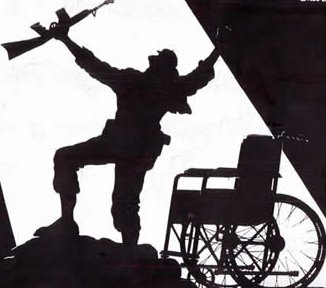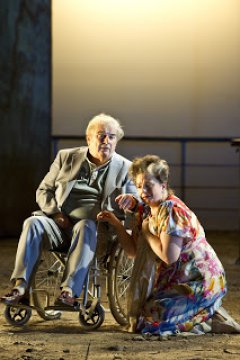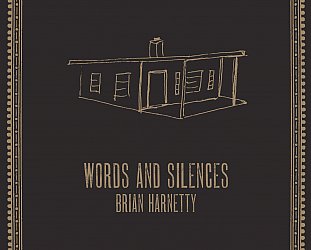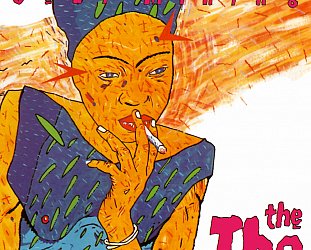Graham Reid | | 4 min read
Aria of the Falling Body

In the last quarter of the 20th century a new wave of opera emerged with stories which often seemed ripped from the headlines of contemporary newspapers.
There were works about Richard Nixon going to China (by John Adams), the life of Malcolm X (Anthony Davis) and Charles Manson’s murderous “family” (John Moran). For those of conservative musical taste these productions seemed not to have the emotional scope to sustain an opera. Yet these acclaimed works have thrilled and provoked audiences, and introduced cutting-edge composers to a new generation of opera patrons willing to embrace the challenge of the music and librettos.
After his opera debut with the comedic Nixon in China, the American John Adams -- a composer loosely affiliated with the “minimalist” school -- extended his musical and philosophical reach in 1991 with an opera which was described by Gramophone magazine as one of the 20th century’s best.
The Death of Klinghoffer is based on a tragic story which hit the headlines in 1985, the murder of the wheelchair-bound Jewish tourist Leon Klinghoffer by Palestinian militants who boarded the cruise ship Achille Lauro and held its crew and passengers hostage for two days.
 Here is a story as contemporary as
today’s news bulletins and yet, through a libretto by Alice Goodman
and Adams‘ expansive musical vision, it touched on the flashpoints
of the Palestinian cause, the political and social implications of
the rise of Israel, and the emotions of the Palestinians and Jews
aboard the vessel.
Here is a story as contemporary as
today’s news bulletins and yet, through a libretto by Alice Goodman
and Adams‘ expansive musical vision, it touched on the flashpoints
of the Palestinian cause, the political and social implications of
the rise of Israel, and the emotions of the Palestinians and Jews
aboard the vessel.
The Death of Klinghoffer is an extraordinary work in which critics have discerned multiple layers of metaphoric and historic meaning, as well as a musical complexity equivalent to that of Bach’s Passion. It is a musical poem where events happen in both the present tense for the Klinghoffers and the Palestinians, but are simultaneously reflected upon by the ship’s captain and the survivors. There is also a Greek chorus providing commentary.
One of the most complex but acclaimed operas of modern times, The Death of Klinghoffer combines elements of minimalism alongside swelling choral passages, and reaches great depths of humanity, notably in its final aria where Klinghoffer’s widow, Marilyn, is distraught when she realises that her husband has been murdered.
A concert performance of The Death of Klinghoffer -- a rare collaboration between the NBR New Zealand Opera, the New Zealand Symphony Orchestra, the Chapman Tripp Opera Chorus and Viva Voce – was an outstanding feature of the AK05 festival.
 Alex Reedijk (right), then general director of
NZ Opera, saw the performance as extending the company’s duty to
present new works and the festival provides the opportunity to do so.
Alex Reedijk (right), then general director of
NZ Opera, saw the performance as extending the company’s duty to
present new works and the festival provides the opportunity to do so.
“In the broad landscape of opera we want to look at contemporary work, and the John Adams’ of this world are absolutely at the forefront of contemporary composition.
“It is a chance to make an offering to the Auckland Festival, and what festivals represent is an opportunity for an adventure we otherwise couldn’t have. Audiences relax their guard a bit more during a festival and this is a chance for all of us to work together and present a piece that no one of us would be able to present on our own. It is a unique congruence of circumstances.
“A concert performance is a great way of giving our audience a full musical experience, and this is a work in which there are some very moving and beautiful chorus pieces. It also tests the audience’s appetite for a more fully staged contemporary American opera.”
Reedijk says The Death of Klinghoffer is an intense musical experience but one which he personally finds immensely rewarding.
“It has a very strong narrative, and interesting and varied musical forces. Bookings have been strong and I think what is appealing to people is that it is a story which has a relationship with current history, and there is a degree of resonance and immediacy with regard to the Middle East today.”
The opera has not been without controversy however, especially in the United States – and particularly after the September 11 2001 terrorist attacks – where lobby groups discerned a political agenda which the composer has repeatedly denied.
“What is striking about Klinghoffer is in the composition and the libretto it does its very best to be a balanced take on the history leading up to the hijacking, and in the behaviour of the characters on the boat.”
 When The Death of Klinghoffer opened in
the United States -- it was premiered in Brussels -- it attracted
considerable press, not all of it favourable. Some critics found it
too politically correct in its even-handedness, Jewish lobbies
condemned it.
When The Death of Klinghoffer opened in
the United States -- it was premiered in Brussels -- it attracted
considerable press, not all of it favourable. Some critics found it
too politically correct in its even-handedness, Jewish lobbies
condemned it.
“I think people who have said it is anti-Jewish,” said Reedijk, “are reacting to the conceit of the opera rather than actually having heard it. To me it is a good balanced tale.”
While it has been adapted into a film by a British company and is studied in music courses in the United States, it has rarely been performed in an American opera house since 1992, which made its concert performance here all the more exciting. Reedijk noted that for a younger audience which perhaps started its listening with minimalism it presents few difficulties.
Yet it is also a work which references Erik Satie’s Gymnopedies piano pieces (in the aria of the falling body) and stacks up powerful parts for massed voices.
“It is a mixture of minimalism and lush choruses, the Night Chorus which ends Act One is like a rocket going off.”
For more on contemporary operas, see here. For more on John Adams and his recent career see here.





post a comment